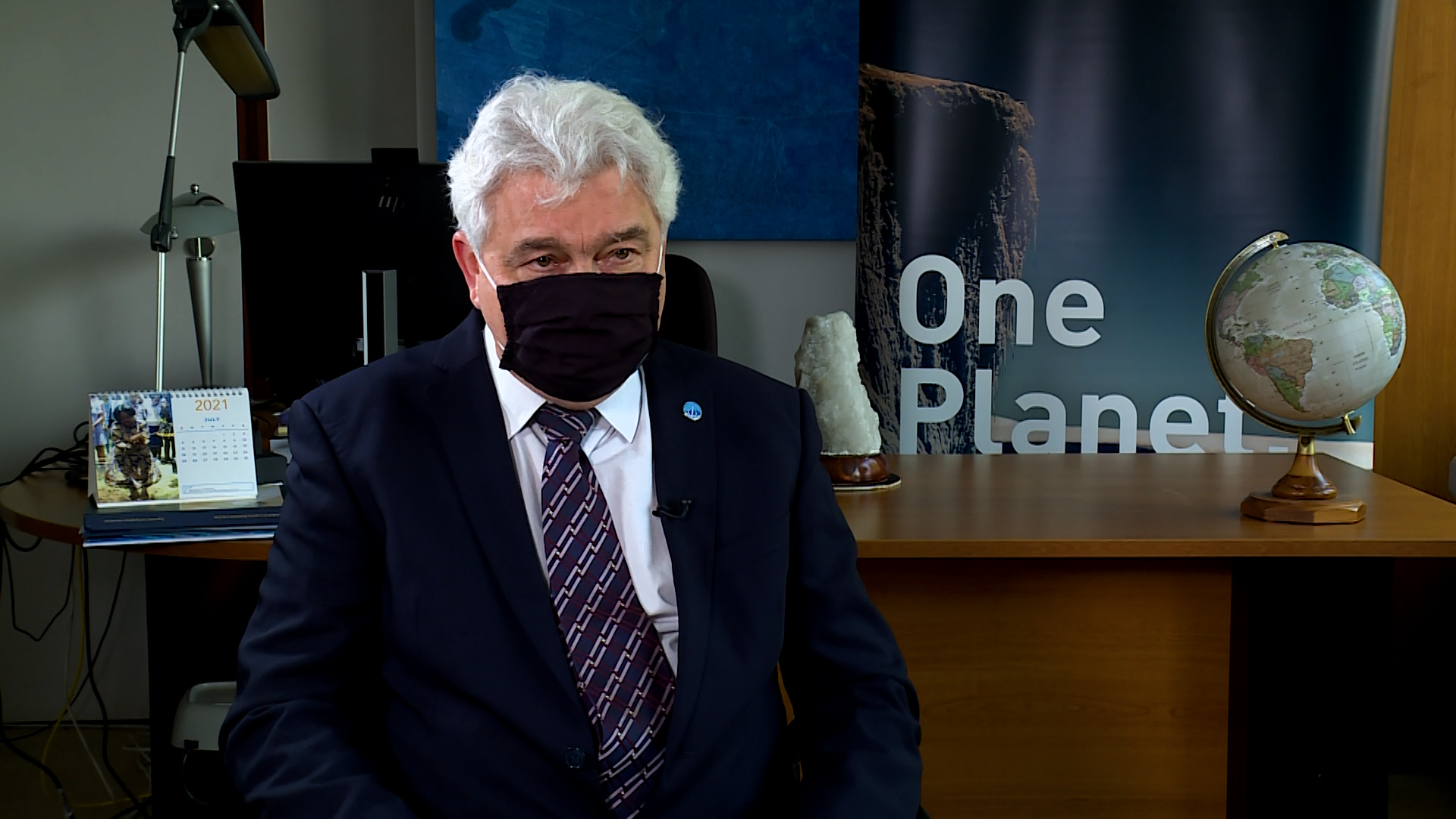05:53

CGTN Europe interviewed Vladimir Ryabinin, Assistant Director-General of the United Nations Educational, Scientific and Cultural Organization (UNESCO) - and Executive Secretary of the Intergovernmental Oceanographic Commission.
Despite global challenges, like a warming climate and less engaged governments, Vladimir Ryabinin is confident of "turning the tide" and bringing about changes to protect the planet.
Plastic waste is a hot topic at the moment, but Ryabinin said change is not quick enough.
But rules governing the "high seas" under international control are likely to progress, and Ryabinin said he's "excited" by the future.
Question: The World Heritage Committee has agreed not to place Australia's Great Barrier Reef on its "in danger" list. UNESCO said, "the facts are the facts and the science is the science," after its recommendation was ignored. Do you believe that the Great Barrier Reef is in danger?
Answer: Australia is doing big and very important work to protect the reef, but all the ocean's flora and fauna are in danger. Because of that, the attention to that issue that UNESCO is now paying and attracting is important.
I think it will be a very good discussion and will result in a very good outcome. Probably more investment, more focus. That's what is happening, I think, attention to critical issues of mother nature needs to be paid, and UNESCO is the watchdog for that.
READ MORE
Face masks 'better than people think'
Wetlands help crane comeback in UK
UK lockdown hero dies aged 100
Q: Every day whales, dolphins, turtles and fish are ingesting plastic and getting entangled in plastic. How can we stop this?
A: The pace is slow but now there is an idea of law and a convention on ocean plastic.
And in many countries, single-use plastic use is diminishing, so there is progress. But at the same time, the flow of plastic into the ocean basically continues at the same pace.
There are some dramatic pictures to represent this: A lorry load every second in the ocean. And also that phrase, that I don't actually like as a scientist, but it's quite a catchy phrase "by 2050 in the ocean the plastic will weigh more than the fish."

In 2019 a storm lifted small plastic garbage from the sea onto the beach in Calabria, Italy./VCG
In 2019 a storm lifted small plastic garbage from the sea onto the beach in Calabria, Italy./VCG
Q: The Paris Climate Accord was signed six years ago now. We see summits and conferences and international agreements. It seems to be a lot of talking but maybe not much action?
A: But during this time, we also had deliberations of a high-level panel for a sustainable ocean economy that was founded by the Prime Minister of Norway. That panel led to understanding that the ocean can be managed and we have to start with exclusive economic zones and 14 countries in the world have joined.
President Macron recently joined too, so it is now 15 countries. By 2025 these countries will manage 100 percent of their exclusive economic zones on the basis of science. I would call this a revolution.
Q: Just 15 countries is not a revolution though.
A: I would say that it is a good start. These are pioneer countries in this process and they are trying to reach out to other countries to convince them to do the same. If I can guess, this will be 10 percent of the oceans that are now protected through that approach.
We are moving forwards towards having 30 percent of the oceans being protected by marine protected areas. We don't need to protect all the oceans. We need to protect sensitive parts of them.
Q: But how do you deal with the areas of the high seas outside the economic zones of coastal countries? That is where we see a lot of issues like overfishing.
A: Even exclusive economic zones - that means 200 nautical miles - are not managed properly and we are trying to change that. When it comes to the open ocean, we are now working with the United Nations on a special extension of the United Nations Convention of the Law of the Sea.
That extension is called an "internationally legally-binding instrument" and those words are important: Legally-binding instrument - on conservation and sustainable use of marine biodiversity beyond areas of national jurisdiction.
So the tide is now approaching the open ocean and there is going to be change.
Q: How do you feel about the future for the world's oceans?
A: It is incredibly exciting to think that the tide can be turned and we are going in that direction.
Cover image: Andrey Nekrasov/Barcroft Media via Getty Images

